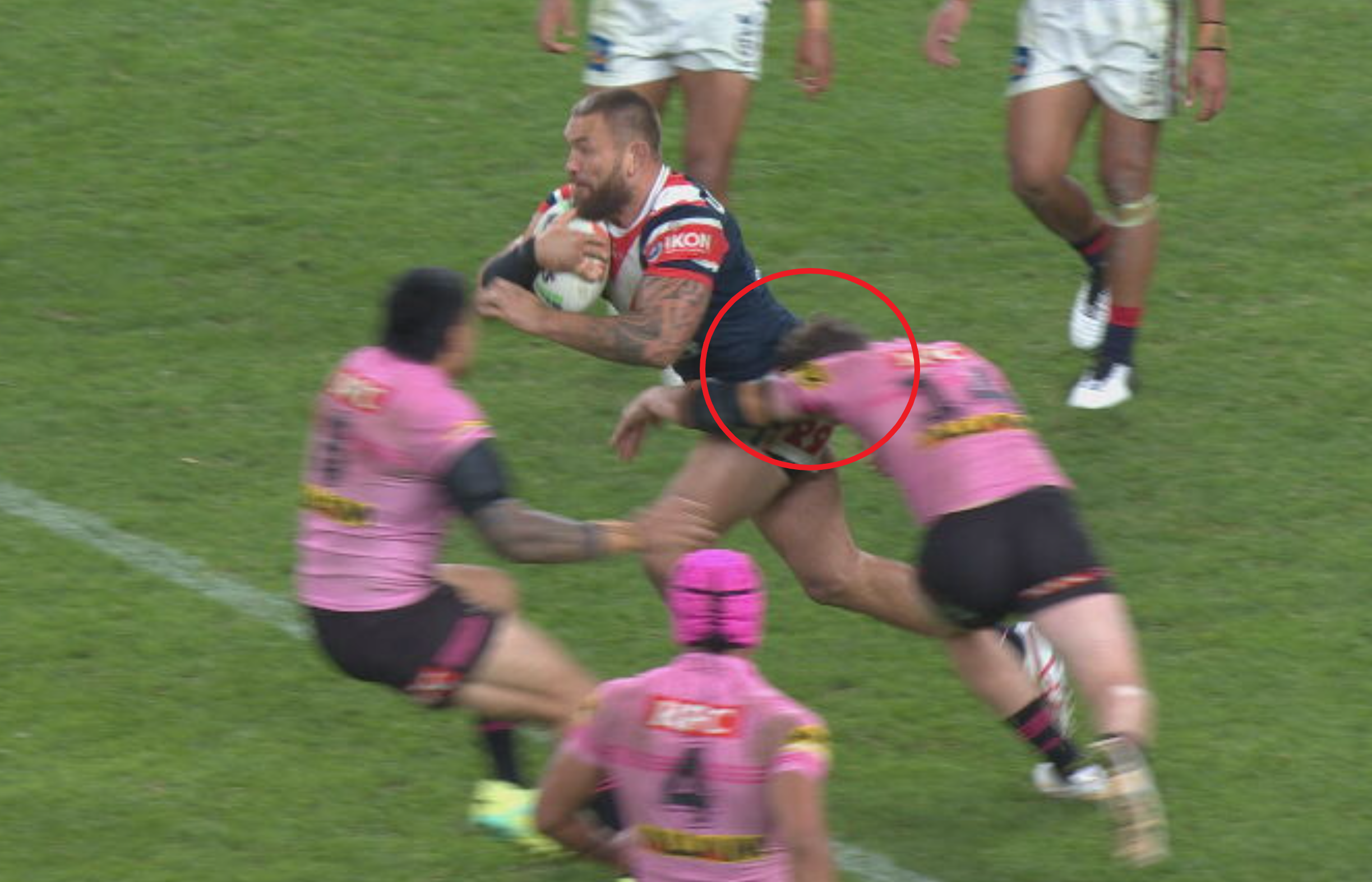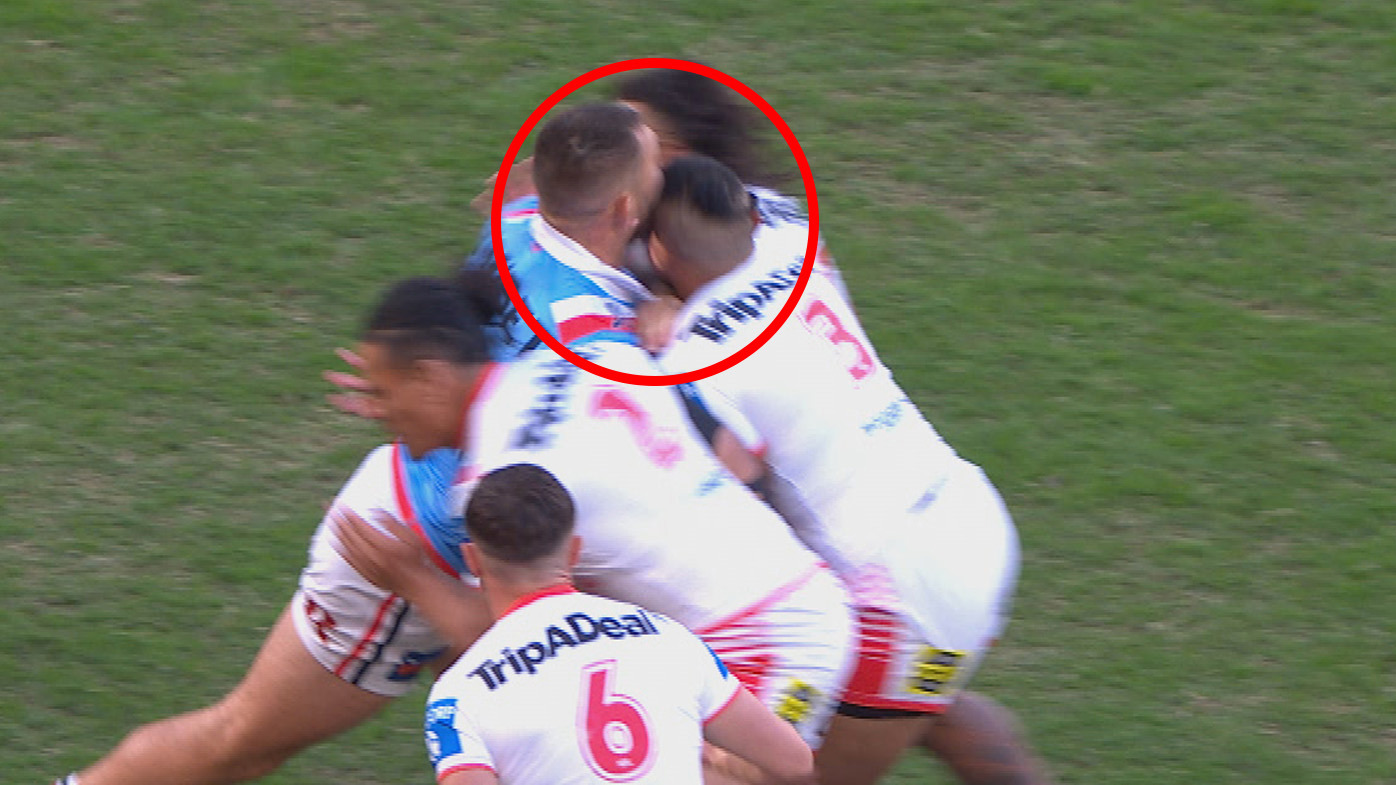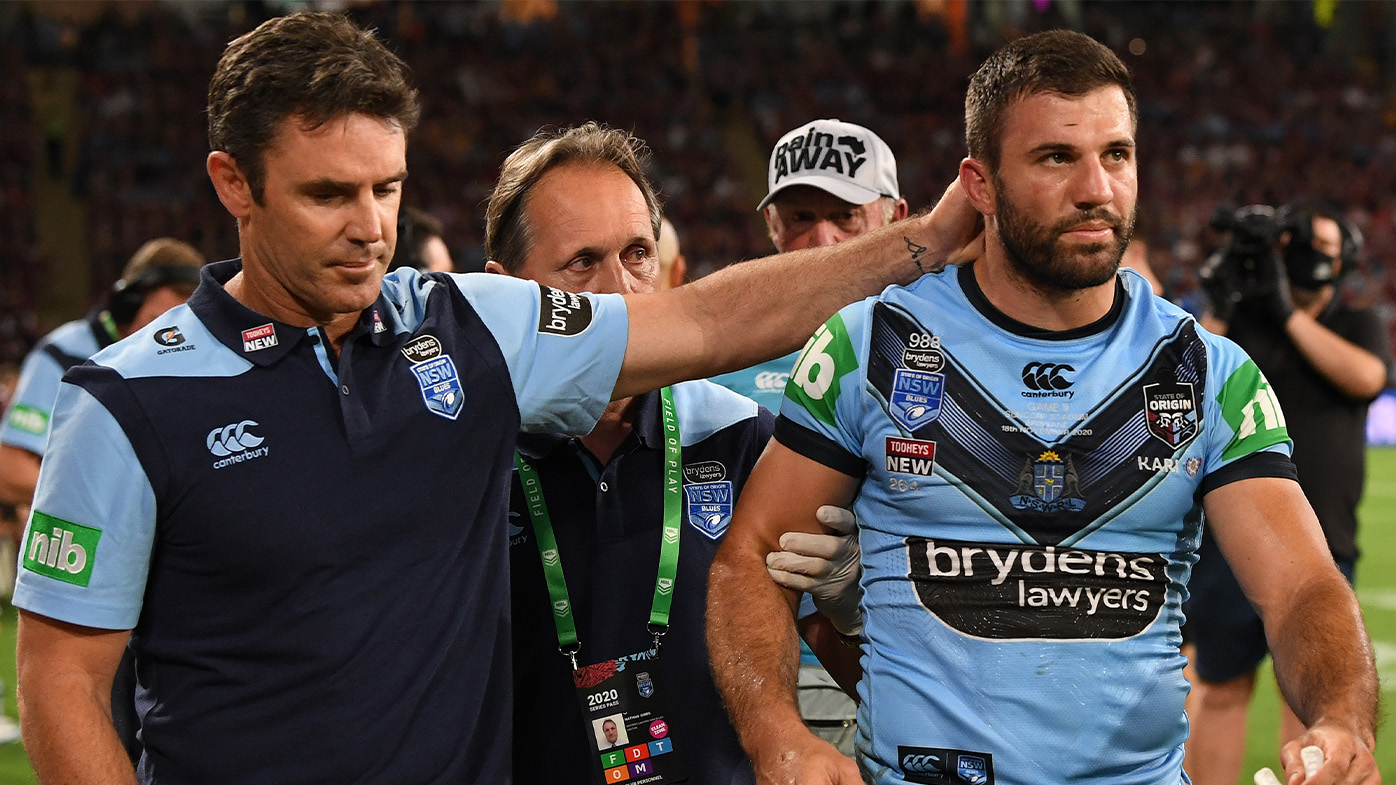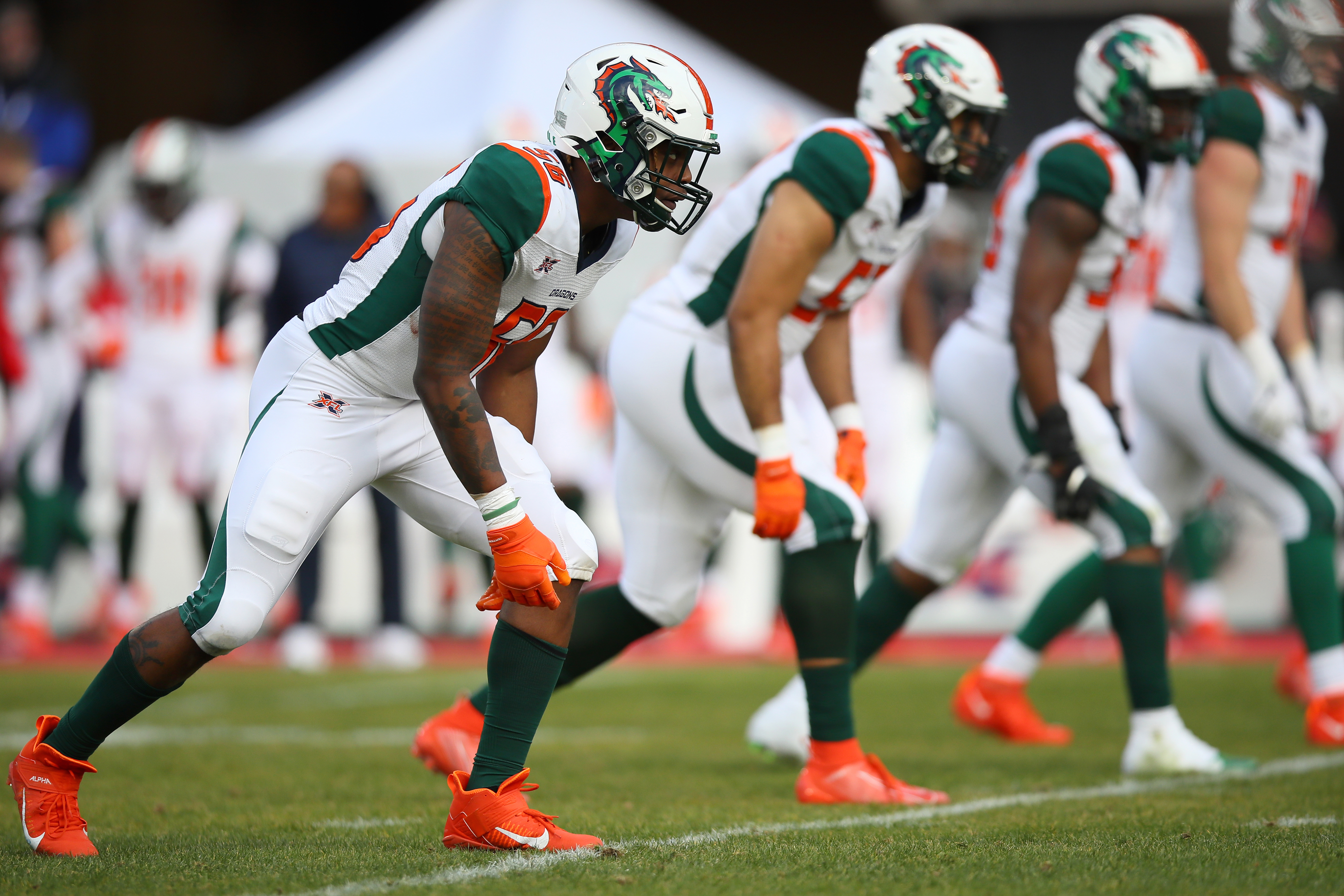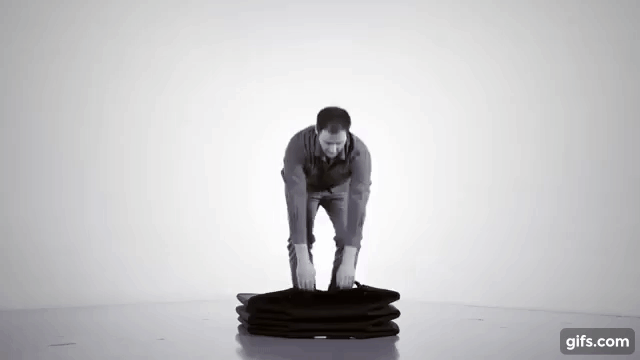'Naïve': Expert slams 'dangerous' NRL theory
A concussion expert has had his say on a theory he considers "dangerous" regarding the head injuries occurring after kick-offs in the NRL.
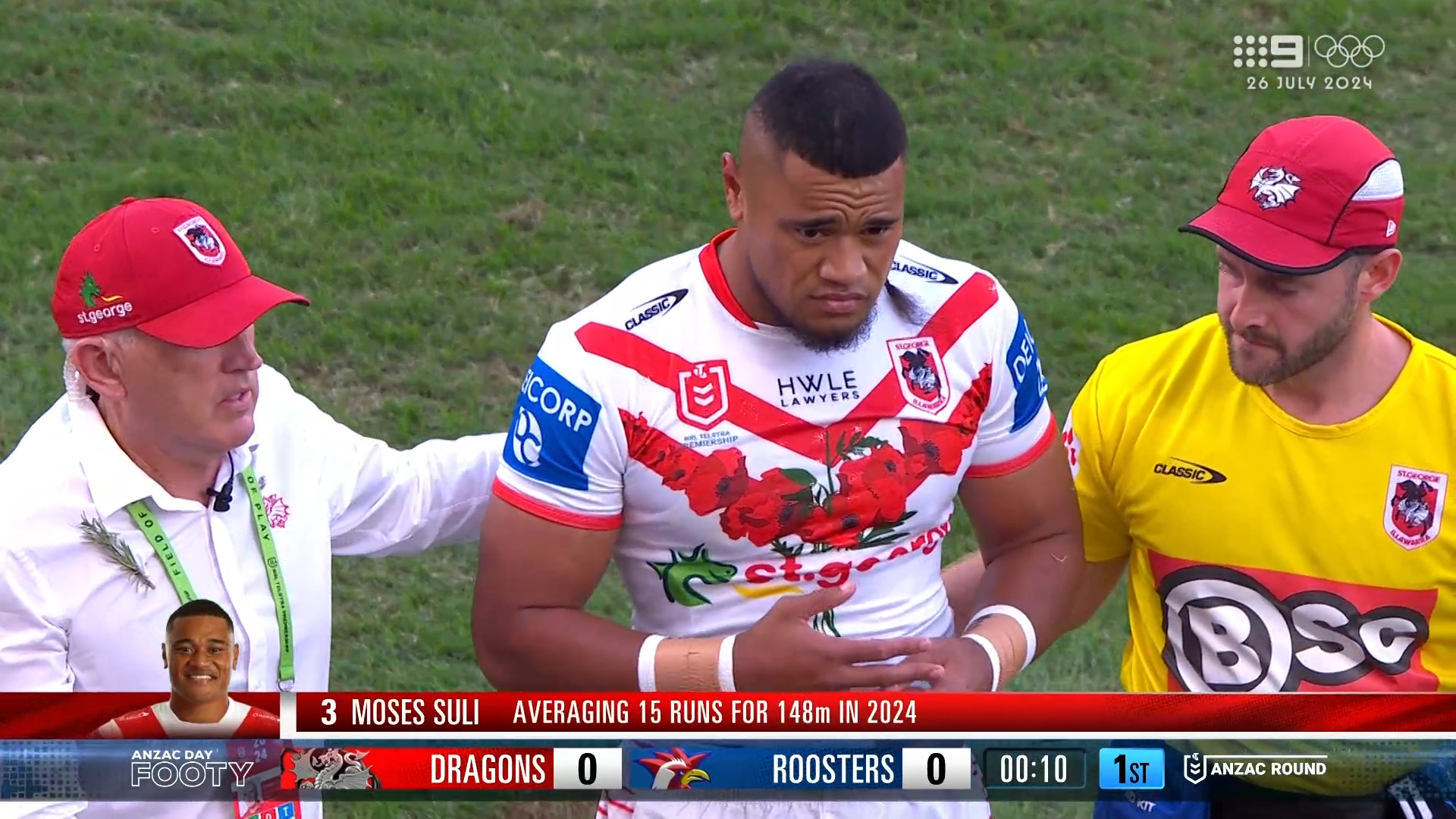
Since unsavoury vision of Dragons centre Moses Suli struggling to get to his feet after a head clash on the opening kick-off of the traditional Anzac Day clash, former players and leading figures in the NRL have voiced support for the kick-off to remain.
"I think we need to keep it, it's what our game is all about, as soon as you take that away, what is our game?," legendary former player Cameron Smith asked SEN Radio this week. "I don't think we can take it out of our game."
Smith played over 400 NRL games and is arguably the next in line to become an Immortal.
READ MORE: Souths skipper's blunt response to Bennett noise
READ MORE: 'Body was never so sore': Xerri's warning to NRL
READ MORE: 'Strong message' as star banned for match fixing
Then there's Phil Gould, the Bulldogs GM and former NSW coach, who was fined for labelling the NRL "stupid" for wanting to adjust its rules in relation to the kick-off.
"It is really frustrating watching our game be torn apart by everybody bar the coaches and the players, it just drives me mad. Doctors, lawyers and fans on social media, that's all they listen to. They don't listen to players," Gould said on Nine's 100% Footy.
Shane Flanagan was quizzed on how the problem could be repaired in a Sydney Morning Herald report that claimed the Dragons coach had brought some sanity to the debate, by highlighting that "timing and technique are everything".
Smith echoed those sentiments on his radio spot during the week, saying that "coaching a bit better technique to make better tackles" would go some way to addressing the problem.
Yet one of Australia's foremost concussion experts has criticised that viewpoint, calling for modifications to the NRL kick-off while denouncing claims that tackle technique can solve the problem.
Dr Alan Pearce, a neurophysiologist and and expert on concussion and repetitive brain trauma in sport, labelled the suggestions "dangerous" and "naïve".
"Simplistic answers like that show the lack of understanding of what happens to the brain in these impacts and collisions," he told Wide World of Sports.
Watch the 2024 NRL premiership live and free on Nine and 9Now.
"It's almost like I should be a selector for the Rabbitohs next week. What we need is an understanding that any sort of contact has the potential for concussion, irrespective of how someone hits, because there's no evidence that there's a particular threshold before someone is concussed.
"Someone can be concussed with someone running through them at 35km/h but we also see some concussions where it looks like someone has just tripped on the ground.
"Then with something like that to say simply is tackle technique is naïve and dangerous because it sets up a precedent if everyone tackled OK we wouldn't have this issue. We've known for decades that's not the case. "
Despite hardcore league traditionalists wanting to leave the game untouched, the NFL, which some consider to be a big brother to the NRL and a sounding board on innovation and evolution, is constantly tinkering with its product to make it safer for it's participants, who play with more protective padding than NRL players.
The NFL moved to change its kick-off rule for next season, which is designed to reduce heavy collisions and concussions.
The new rule will see the ball kicked from the kicking team's 35-yard line, but every player on the kicking team other than the kicker, will now line up with at least one foot on the returning team's 40-yard line.
No players other than the kicker and the returners can move until the ball is fielded by a returner.
While it would go against the fabric of the NRL to have players lined up in front of the kicker for a kick-off, the limitations on momentum on the runner and the defender would allow the play to take place at a safer pace.
For argument's sake, the speed and impact of an NRL kick-off could be reduced if the restart was taken by the kicker at the 50-metre line, while the 12 defenders could line up at the opposition 20-metre zone and would only be able to move once the ball-runner touches the ball.
To league purists this might seem unfathomable, but like the NFL was able to do, it does represent a middle ground to appease all involved, and is more palatable for the consumer as opposed to a set restart.
"We look at the sport in 2024, we can go back to 1984 and say yeah it was actually different back then," Dr Pearce told WWOS.
"If you look at the sport in 1954 it was different back then as well. So the sport will always evolve. And that's something we can't keep on holding on to for the safety of the athletes.
"One of the things we have to remember is all these pro sports are entertainment. While it's very seriously played, we can't do that at the expense of these athletes who are seen as nothing more than commodities.
"If there are ways we can modify things without making it look too different, and this is a great opportunity for the kick offs to change, because it is a high risk play and this is where a lot of the concussions are occurring."
While the NRL continues the debate around the particular sequence of play, the code's chief executive Andrew Abdo confirmed there are no immediate plans to sack the kick-off, but said it would be discussed at the next end-of-season review.
For Dr Pearce, the message to NRL powerbrokers and the former players who are resisting change, is quite simple.
"Tell them to look at their friends and buddies, former players who are struggling with cognitive impairments, mental health issues, brain disease and see if they still think this is quite acceptable," he said.
"We need to modify some of these elements in the game for future generations."


